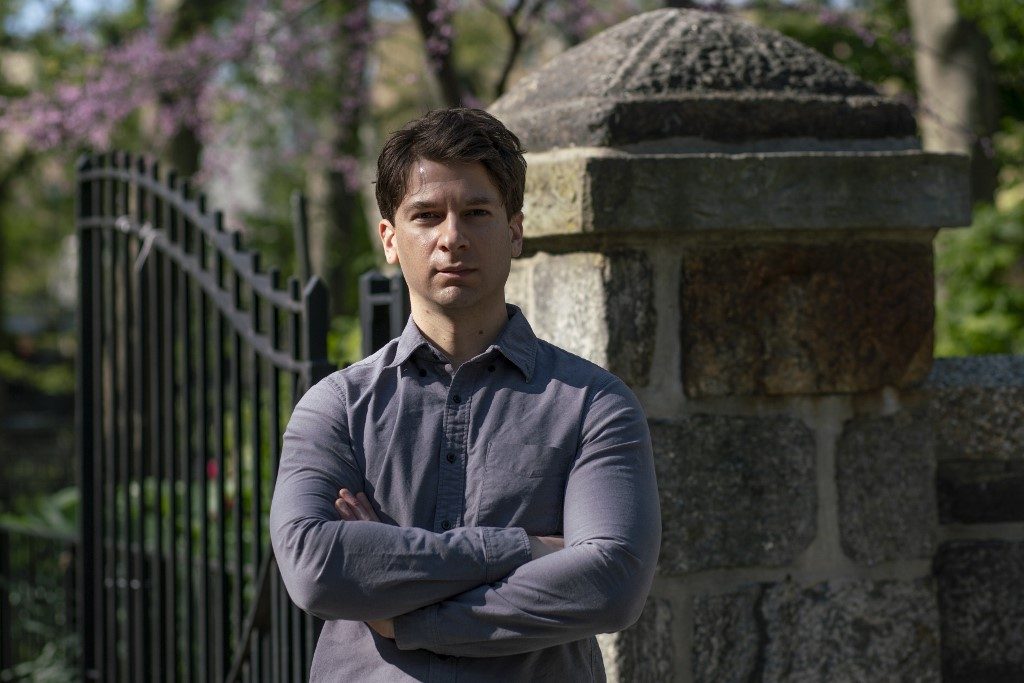SUMMARY
This is AI generated summarization, which may have errors. For context, always refer to the full article.

WASHINGTON, USA – The coronavirus pandemic has hit the United States harder than any other country, sending unemployment skyrocketing and undoing the lives of countless Americans. Meet 3 of them:
Finding her way
Laya Hamilton was watching President Donald Trump speak on television from the bar where she worked in Atlanta one day in mid-March when he announced all restaurants should switch to serving food to-go. That’s when she realized she’d be losing her job.
It was a setback for 23-year-old Hamilton, who had committed herself to bartending at a restaurant serving barbecue and comfort food a few months earlier after deciding she couldn’t juggle working there alongside studying for a journalism degree. Plus, the money was good.
“The main thing about serving is you can make as much or even more than somebody that went to the office that day,” she said.
Sure, that could mean 9 hours on your feet without a break for base pay of just $2 an hour, but the tips regularly added up to hundreds of dollars a day.
It’s her savings from those lucrative months earlier this year that Hamilton is now surviving on, since her unemployment claim has yet to be approved by the state.
In the meantime, she’s thinking about a career, something at the intersection of public relations and politics.
And when the bar reopens, she’ll go back, even if social distancing protocols mean the customers won’t be as plentiful as they were before.
“It’s not that much contact at all,” she said of the work. “I make their drink and give it to them.”
At all hours
Sandra Mahesh has taken to waking up at strange times, picking up her phone and dialing the same number: the Maryland state unemployment office.
At 57, she’d just gotten back on her feet after moving to the suburbs of Washington, beginning a new job in February working the front desk of an upscale apartment building.
But then she got sick: fever, cough, dizziness. She feared it was the coronavirus but tested negative.
By the time she was well again, the virus was rife, and her doctor said it was best if she stayed home.
But after getting unemployment payments for a few weeks, the state cut her off, apparently believing she’d been hired again, sending Mahesh on a thus far fruitless quest to get them to fix the problem.
“I have been literally waking up all times of the night, of the day, trying to call or get online,” Mahesh said.
Born in Guyana, Mahesh is a naturalized American citizen who said she’s used to living frugally, skills she’s put to use in recent weeks as she negotiated a deferment of her car loan, but she’s still behind on her rent.
Most of her time is spent inside, on the phone with her daughters or looking online for jobs she can do remotely. When she does go outside, it’s to walk around the parking lot of a closed shopping mall.
“That’s how I’m surviving, but this kind of situation would make anybody go crazy,” Mahesh said. “I don’t see a good future with America right now.”
Career, interrupted
In the rarified world of New York sommeliers, 35-year-old Evan White was good enough to be hired away from Babbo, a fine dining restaurant once owned by disgraced celebrity chef Mario Batali, for another eatery with an even better wine selection.
Then the coronavirus reached the city, both restaurants closed and White was put out of work.
“I think I will be able to get a job in the restaurant business once things do start to become more normal again. Will it be the exact some position as before? I can’t say,” White said.
He’s been working in restaurants for 15 years, beginning as a server before discovering his love of wine, though after long days surrounded by the stuff he often finds himself craving anything but – cider, beer, or something without alcohol.
White can’t remember the last time he’s had months of free time, but hasn’t let his career slip; he’s trying to take classes on wine certification by video conference, all while wondering if the pulsing restaurant scene New York is famous for will ever return.
White is receiving unemployment, and when he compares himself to some of his coworkers – those making hourly salaries or supporting families or relatives in other countries – he can only feel lucky.
“It puts worrying about selling wine in a totally different perspective, makes it seem so frivolous in a way,” he said. – Rappler.com
Add a comment
How does this make you feel?
There are no comments yet. Add your comment to start the conversation.